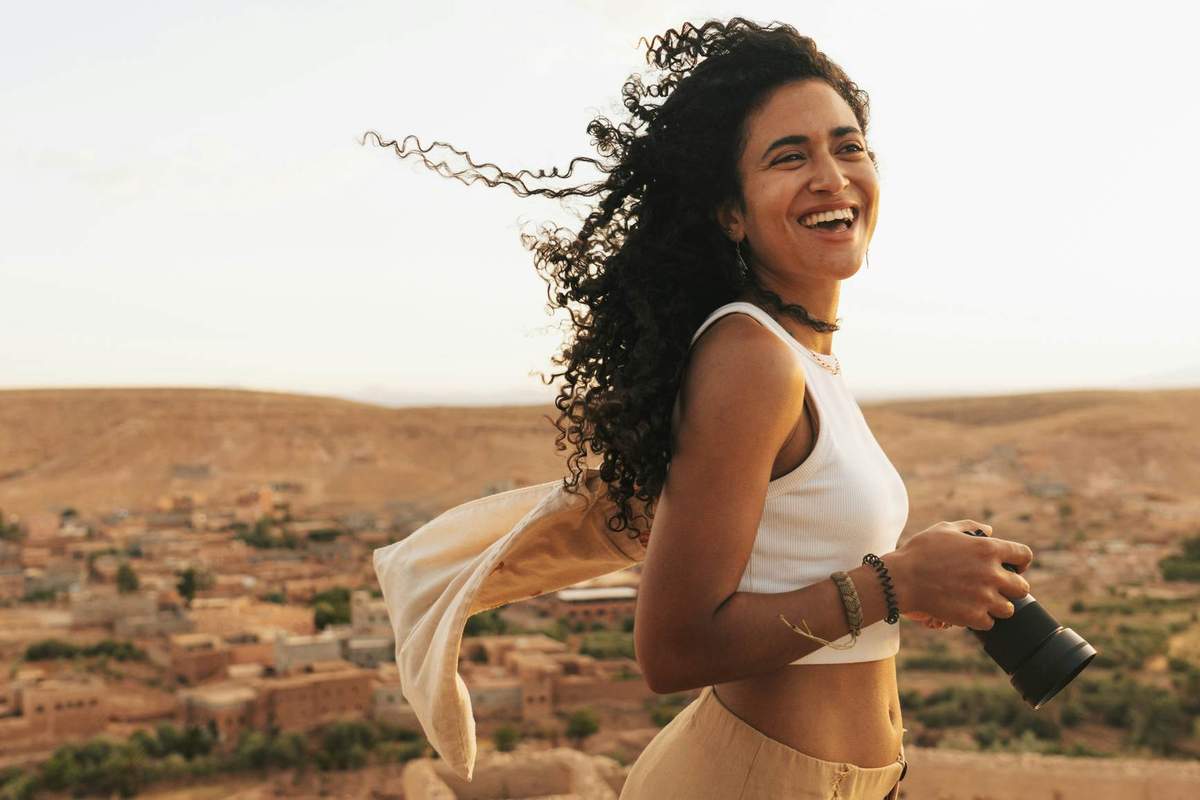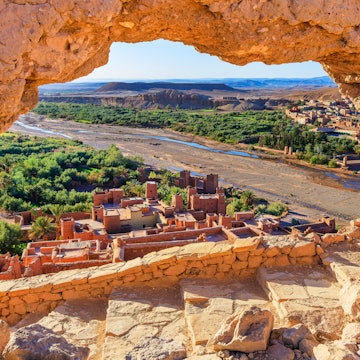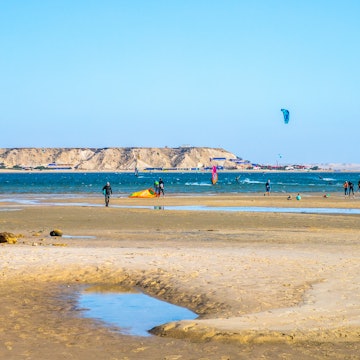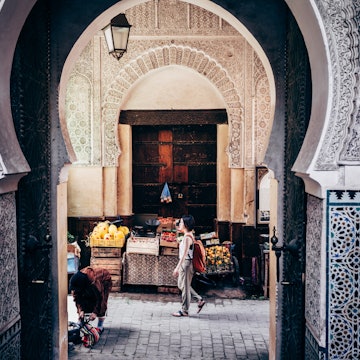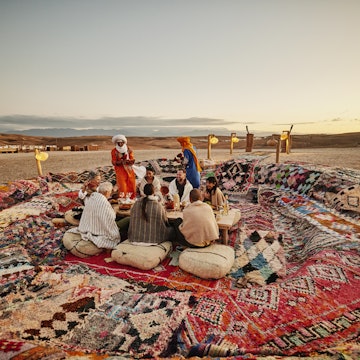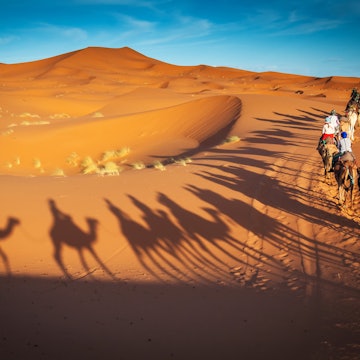

Explore Essaouira and beyond with this guide for first-time visitors. Balate.Dorin/Shutterstock
Nestled along Morocco’s windswept Atlantic coastline, Essaouira is a port and bohemian town known for its striking white-and-blue medina. This UNESCO World Heritage–listed place status never fails to capture the imagination thanks to its rich history, which dates back to the Phoenicians and Carthaginians. With its harmony between tradition and modernity and the surrounding Marrakesh-Safi region’s stunning landscapes and vibrant energy, Essaouira has long been a magnet for travelers seeking both serenity and adventure.
The town’s laid-back vibe and welcoming hospitality make exploring the local souqs and the crafts on sale there a joy. Use this first-time guide to help you plan your visit and uncover the region’s best features, ensuring that you make the most of your time in Essaouira and along Morocco’s Atlantic coast.

When should I go to Essaouira?
Thanks to its coastal location, Essaouira is internationally renowned as the “Windy City of Africa,” making it a huge draw for windsurfers between April and November.
Late spring brings the three-day Gnaoua World Music Festival, which features innovative performances by over 400 artists from countries including Spain, Senegal, Brazil, Algeria and the Palestinian Territories.
During the summer months Essaouira has an active beach scene, with visitors enjoying various water sports and horseback riding along the Atlantic coast.
Do I need a visa for Morocco?
Tourists from countries like the UK, EU, USA, Canada, Australia and New Zealand can visit Morocco visa-free for up to 90 days (as long as they have a passport valid for six months and a return or onward ticket). Travelers from some other countries may need an Electronic Travel Authorization (AEVM), which can be submitted via an online application, either electronically or via the nearest Moroccan embassy, consulate or visa center.

How much time should I spend in Essaouira and the Atlantic coast?
If you just want to chill out in Essaouira itself, allow at least three days. If you plan to fully immerse yourself in local activities and explore the surrounding region, a two-week stay is ideal. Renting a car gives you the flexibility to drive along the coast and desert, and easily travel to more-remote areas.
For example, Safi, a two-hour drive away, is known for its pottery and culinary specialties. If you choose to make the three-hour drive to Marrakesh and visit its exquisite museums, be sure to book entrance tickets to major attractions such as Jardin Majorelle and Musée Yves Saint Laurent in advance.
Is it easy to travel around Essaouira and beyond?
Essaouira Mogador Airport is just a 20-minute drive from the fabled medina. Essaouira itself is compact and highly walkable, especially if you’re staying in the medina, where most hostels and hotels are located. On the other hand, most resorts are found outside the medina, though usually no more than a 5–10-minute drive away. Some resorts offer free shuttle services to the city center, though schedules can vary depending on the season.
If you’re staying within the medina, note that parking is outside its 18th-century seafront ramparts; the resorts beyond them offer simpler parking options. If you’re planning to stay within Essaouira town, a local taxi can often be the easiest and most convenient option to get around.
The local bus service, Lima Bus, has routes that serve Sidi Ishaq to the north, Smimou and Sidi Kaouki in the south, and Tafetachte to the east. While this network can be used for day trips, having a car offers greater flexibility and privacy, making it much easier for visitors to split their itinerary between Essaouira and surrounding destinations. Car rentals are available at the airport.
Top things to do in Essaouira

Ride horseback along the Atlantic coast
Essaouira has become famous for unique riding experiences on golden beaches, under open skies and with unforgettable sunsets. Cheval Essaouira and Essaouira Horseride are two of the best companies to get if you’re keen to ride a horse along the water. Whether you set out on one- or two-hour local rides or multiday treks beyond the city, the feeling of galloping along the coast is truly unforgettable, and offers a sense of connection to nature and the vast ocean.
Be pampered in Sidi Kaouki
A 30-minute drive south from Essaouira, Sidi Kaouki is a laid-back coastal village popular with surfers in search of major waves. It’s also a little quieter than Essaouira in the high-season months, making it popular with visitors keen to escape the crowds. Shop at local markets for the argan-oil products – such as cosmetics, soaps and shampoos – the area is known for. And consider treating yourself to some pampering with a night at the Kasbah d’Eau, a fabulous boutique hotel with a traditional hammam.

Surf Essaouira’s epic waves
Essaouira is renowned for its exceptional surf conditions, which attract beginners and pros from around the world. Yalla Surf offers surfing, kitesurfing and wing foiling lessons led by experienced and trusted multilingual locals with good knowledge of the region. Offering group and private lessons, as well as package holidays and all-inclusive experiences, Yalla has the surfing experience you’re after. Group surf lessons, which take place in Essaouira, Sidi Kaouki and Imsouane, start at 30 euros for a two-hour session.
My favorite thing to do in Essaouira
I’m drawn to adrenaline-filled activities in nature, whether that’s horseback riding along the Atlantic coast, sand-boarding on the dunes or hiking in the Atlas Mountains. To wind down and connect with the local community, I love wandering within Essaouria’s medina walls. Café L’Esprit is perfect for coffee, and I love the chicken club sandwich at Brunch & Co.
Where should I stay in Essaouira?
La Smala Hostel has a laid-back vibe and bohemian charm. Guests love the communal spaces, rooftop terrace and frequent music jams that make it easy to meet like-minded adventurers. The Riad Lyon-Mogador is a beautifully restored riad in the center of the medina, with cozy rooms and a stunning rooftop terrace offering panoramic views of the city and ocean. If you’re looking for five-star elegance and ocean views, Hôtel Le Médina Essaouira Thalassa sea & spa - MGallery is located on the beachfront, and just an 8-minute walk to the medina.
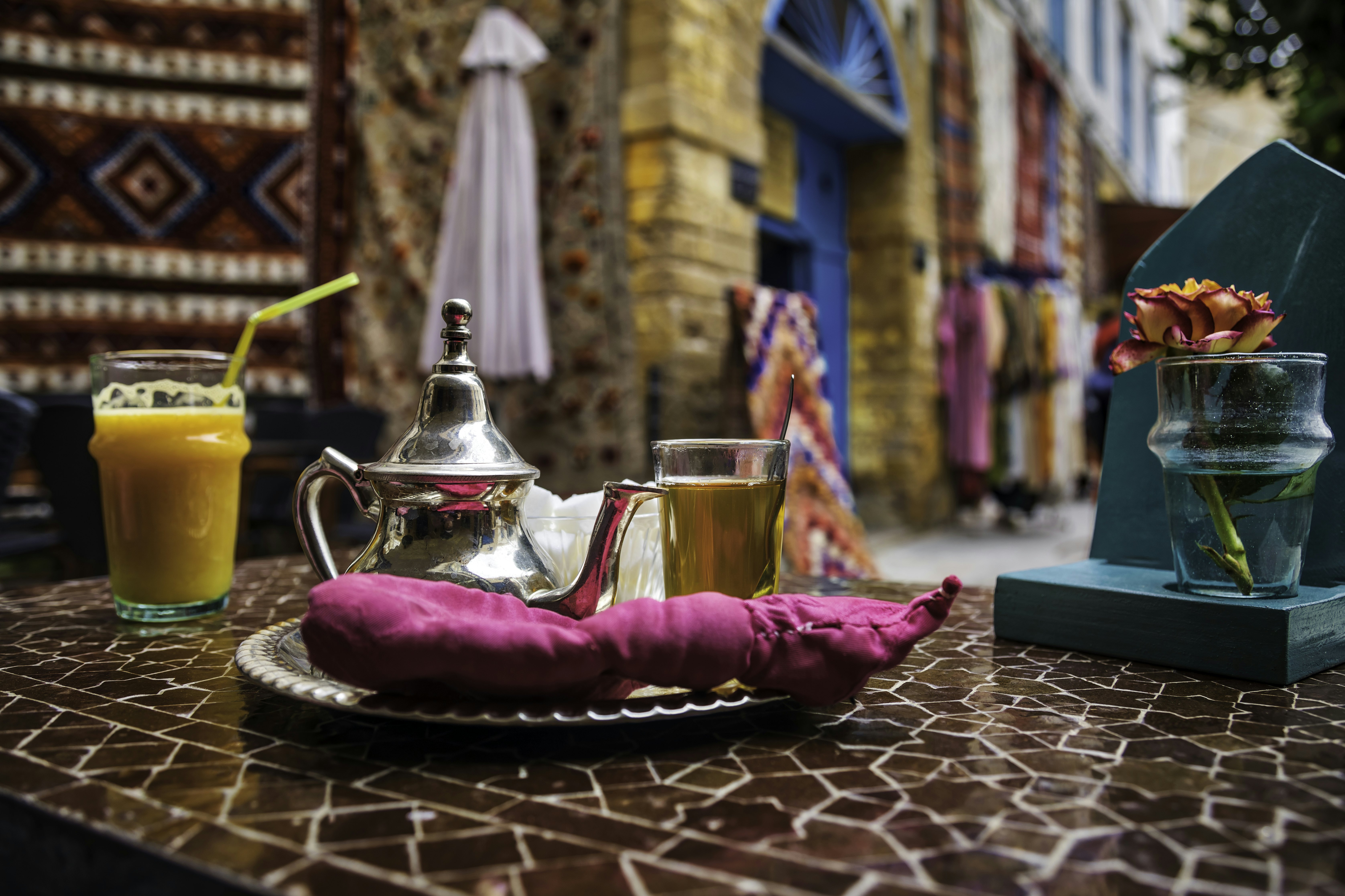
How much money do I need in Essaouira?
Compared with many other destinations in Africa, Essaouira is quite budget-friendly. Here is a guide to some average costs.
Night in a budget hostel: From 370 Moroccan dirham (Dh)
Double room for two in a mid-range hotel: Dh740–1470
Coffee or mint tea: Dh20–30
Tajine with fresh local vegetables: Dh70
Fresh fish with couscous and vegetables: Dh100
Traditional Moroccan sandwich: Dh20–50
Can I use a credit card or should I bring cash?
Credit cards are widely accepted in tourist areas and for online bookings, though you should count on carrying cash for local activities and market stalls. Area merchants will welcome negotiations, but always be respectful of the work of artisans and the local community. Avoid converting all your money at the airport due to unfavorable rates; exchange small amounts for immediate needs and the rest gradually at the banks in the medina. The Moroccan dirham is a closed currency that cannot be reconverted, so exchange only what you need for your stay.
Is Essaouira safe?
As a solo female traveler, I find Essaouira to be wonderfully safe, thanks to its traffic-free medina and laid-back atmosphere. Still, a few basic precautions and tips can enhance your experience. Keep your belongings secure, avoid photographing locals without permission (this might require a tip), and use licensed taxis or arrange transport back to your accommodation if you’re out late.
This is a culturally rich and historically a diverse city. Still, Morocco has conservative attitudes toward LGBTQ+ people, and public displays of affection (no matter with whom) are frowned upon. While Essaouira is more relaxed than other parts of the country, discretion is advised, particularly outside the medina and especially in rural areas.

What languages are spoken in Essaouira?
Much of the region is multilingual, with English and French widely spoken. Yet any effort to communicate in Arabic, the local language, will earn you much respect and appreciation. You’ll demonstrate genuine interest in the culture and the community, setting you apart from those visiting solely for the sun, sea and sand. Arabic dialects differ, but here are a few common phrases that can be useful and understood in Morocco:
Aslama or al-salam alaykom – hello or peace be upon you.
Bislama – goodbye.
Samahni – sorry/excuse me.
Shukran – thank you.
Kam hatha? – how much is this?
Fayne/kif nemchi li…? – where is/how can I get to…?






